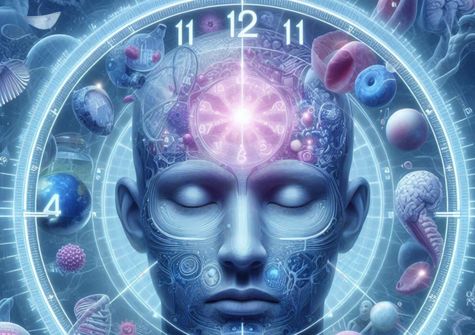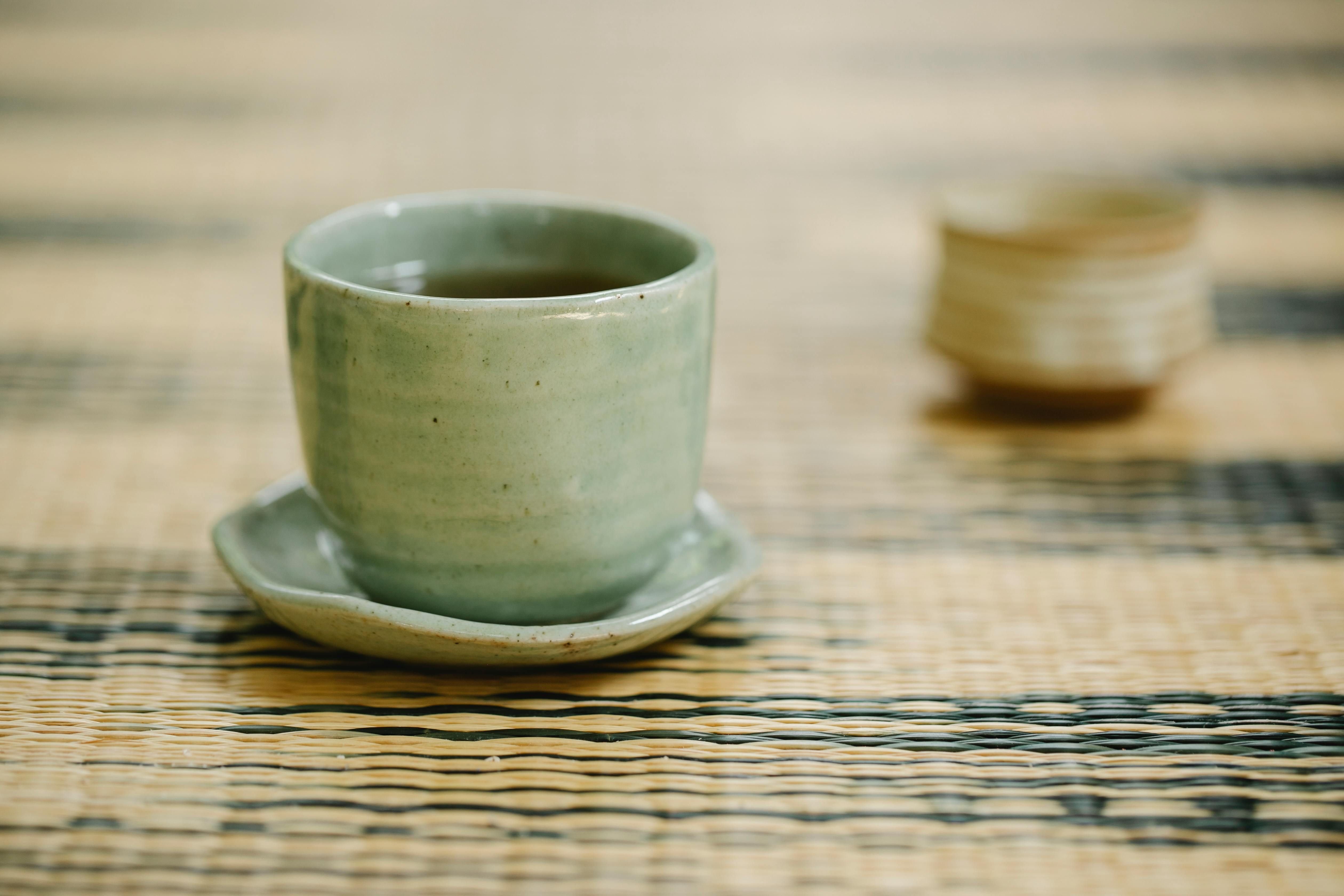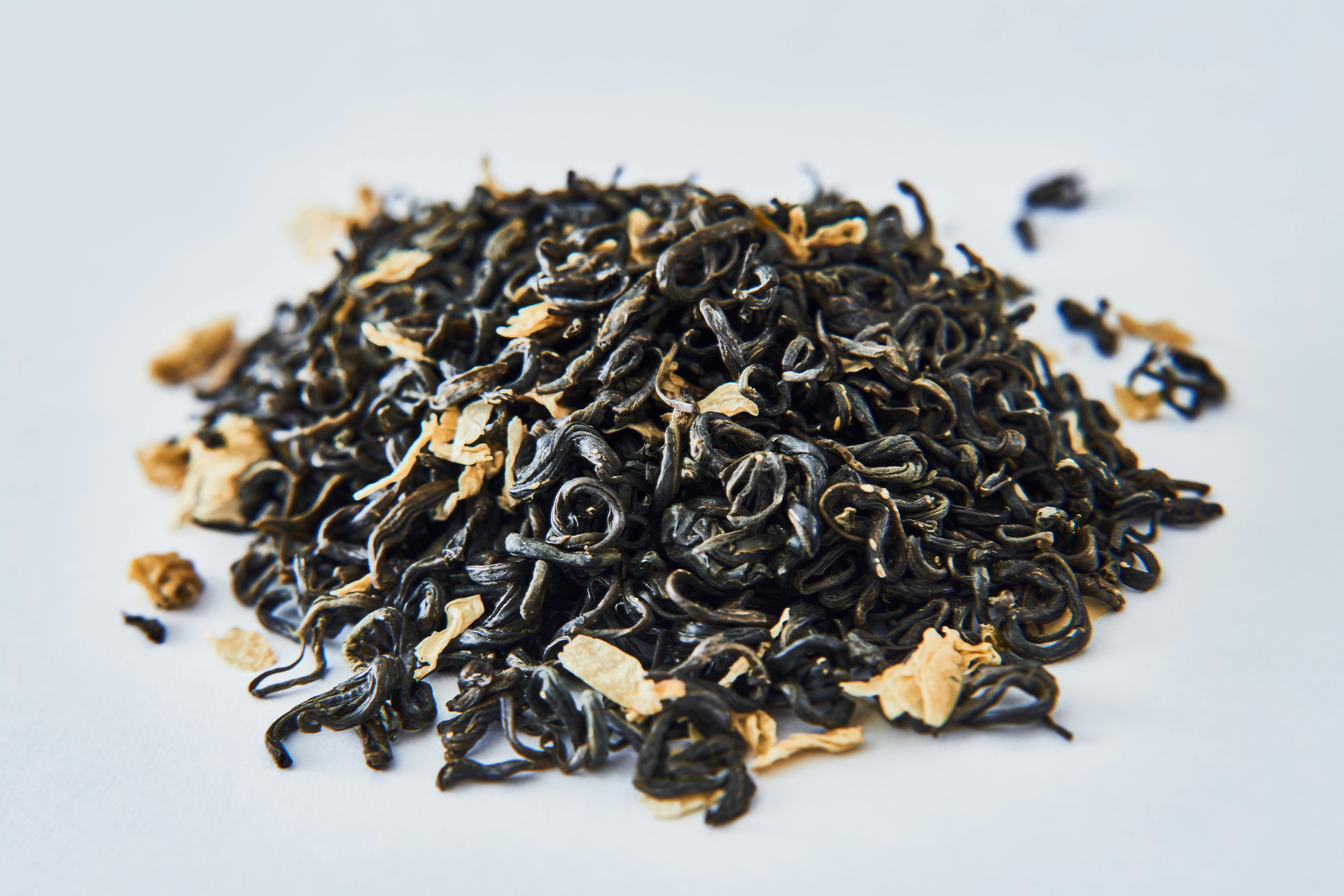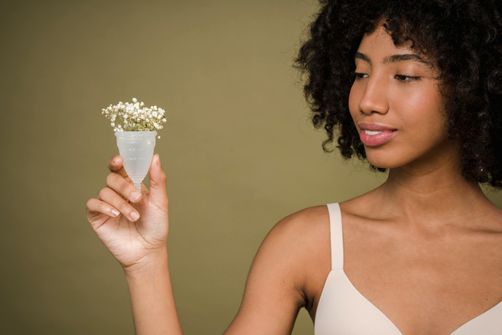
How Circadian Fasting Benefits Women’s Health
When it comes to fasting, timing is everything—literally. Aligning your eating patterns with your body’s circadian rhythm—your internal 24-hour clock—...

That first cup of piping hot black tea in the morning is practically a sacred ritual for many of us. The rich, earthy aroma wafting through the kitchen, the gentle cradling of the warm mug in our hands as we take those first few reviving sips - it’s a moment of tranquility before we dive into the chaos of the day. There’s just something about that morning tea ritual that centers us, allows us to be present, and sets an intention for mindfulness as the new day begins.
From the careful heating of the water to the ritualistic steeping and straining, making a perfect cup is truly an art form. Maybe you have a gorgeous ceramic teapot passed down through generations or you rely on the trusty electric kettle. Either way, this comforting routine connects us to centuries of tradition around the world.
After all, tea has been savored as a health elixir, social connector, and vital part of cultures for thousands of years - it’s the most consumed beverage in the world after water, with over 158 million Americans alone drinking tea on any given day.
But for those of us who intermittent fast or follow other fasting protocols, that delicious morning cuppa could potentially be sabotaging our efforts.
To understand this, we need to go down to the molecular level and investigate exactly what’s in that morning brew. Black tea is made from the leaves of the Camellia sinensis plant, which naturally contains compounds called polyphenols. These powerful plant antioxidants have been linked to all sorts of impressive health benefits, from reduced inflammation to improved brain function.
The most abundant polyphenol in black tea is a unique group called the flavins, which make up about 10-30% of the dry weight of black tea leaves. These compounds, which give black tea its rich amber color, are what’s left over after the fermentation process that turns the green tea leaves into the dark black and oxidized variety. Studies show the flavin polyphenols can inhibit inflammation pathways, regulate blood sugar, and may even have anti-cancer properties. In fact, research found black tea flavonoids induced apoptosis (programmed cell death) in up to 73% of lung cancer cells after 48 hours.
There are also smaller amounts of other potent polyphenol antioxidants like theaflavins (3-6% dry weight), thearubigins (10-20% dry weight), and EGCG (epigallocatechin gallate) in black tea. EGCG is the famous antioxidant also found in green tea in high concentrations (around 138mg per cup) that has been well-researched for its metabolism-boosting and cholesterol-lowering effects. One study revealed EGCG increased fat oxidation by 33% over a 24-hour period.

However, these health-promoting polyphenols could potentially trigger an insulin response in our bodies that may disrupt our fasted state. You see, insulin is a hormone produced by the pancreas that plays a crucial role in regulating blood sugar levels. When we consume foods or drinks that contain calories, carbohydrates, or certain nutrients, it signals the pancreas to release insulin into the bloodstream.
Normal fasting insulin levels are typically below 25 mIU/ml, while levels of 12-20 mIU/ml are considered ideal. Insulin then helps ferry glucose (from the digested carbs) into our cells to be used for energy. It also promotes the storage of glucose as glycogen in the liver and muscles and may facilitate getting glucose into fat cells to be stored as fat for later use. So insulin’s main role is to properly manage the nutrients we ingest - but too much intake can lead to excessive insulin spiking and issues like weight gain, diabetes, PCOS and more.
So if black tea does indeed spike insulin levels, even mildly, that would technically cause our body to switch from its fasted state into “fed” mode, thus potentially diminishing some of the benefits of fasting like increased fat burning, cellular repair, and more. It’s thought that many of the metabolic benefits of fasting start kicking in once insulin levels drop below 5-10 mIU/ml. And that’s not what we want if we’re strategic fasting.
But the question remains - do the polyphenol compounds in black tea actually impact insulin enough to be concerned? After all, tea doesn’t contain calories, carbs, or protein - the usual suspects for spiking insulin and glucose levels. One cup of black tea only contains around 2-3 calories, almost no carbs, fat or protein.
Studies show the glycemic load of black tea is estimated around 1 - extremely low on the glycemic index scale compared to foods like white bread which ranks around 75. However, that doesn’t necessarily rule out a potential insulin response.
The verdict on whether black tea impacts insulin and breaks a fast? Well, unfortunately there’s no clear scientific consensus yet. Some promising studies show black tea having little to no effect on insulin or glucose levels when tested.
In one study published in the Asia Pacific Journal of Clinical Nutrition, researchers found no significant differences in insulin levels after participants consumed either 5 cups of black tea or a placebo beverage after an overnight fast. Insulin levels remained stable in both groups, fluctuating less than 5%.
A study found that daily black tea consumption for 3 months produced no changes in fasting blood glucose or insulin levels in a group of over 2,500 participants.

However, other research has identified more substantial impacts on insulin that could potentially disrupt a fasted state, at least to a degree. It likely comes down to individual factors like metabolism, sensitivity to the specific polyphenols in tea, body weight, diet, genetics, and potentially even the brewing time or strength of the tea.
For example, a study noted an increase in insulin levels of around 17% peaked around 30-90 minutes after participants consumed black tea extracts containing 300mg of polyphenols, before returning close to baseline a few hours later. The researchers hypothesized that the tea polyphenols may directly stimulate the pancreas to secrete insulin as they are absorbed in the intestines.
Another study found that consuming the equivalent of 6 cups of black tea temporarily raised insulin levels by an average of 78% for a short period before tapering off after 2 hours. However, the researchers cautioned that this was still nowhere near the insulin spike caused by drinking a sugary beverage.
So what’s the final verdict on whether sipping black tea will break your fast? Here’s the bottom line for those doing shorter daily fasts of 12-16 hours: A moderate 1-2 cups of plain black tea, especially when consumed earlier in the morning, is unlikely to completely negate or undo your fasting efforts and results.
While there may be a small, temporary spike in insulin levels as your body responds to the tea polyphenols - studies show anywhere from a minor 7% increase to a larger 78% transient spike that is short-lived - it’s generally not significant enough to fully kickstart your body into “fed” mode and significantly diminish the benefits you’re working towards compared to actual calorie/food intake.
For context, eating a full meal prompts insulin levels to rise by around 300% on average compared to fasting levels. Having a carb/sugar heavy meal can spike insulin as much as 800% higher than baseline fasting levels. So the impact of black tea pales in comparison, even with the larger spikes noted in some studies.
According to researchers, temporary insulin increases under 300% after an overnight fast that return to baseline within a couple hours are not cause for major concern and do not significantly disrupt autophagy or lipolysis (fat burning) pathways.
However, if you’re doing more extended multi-day fasts of 24, 36, or even 48+ hours, you’ll likely want to avoid black tea and stick to plain, unsweetened coffee or herbal teas without calories to stay in that coveted fasted state. With a longer fasting period, even a small, temporary rise in insulin could potentially disrupt some of the metabolic pathways and processes you’re trying to continuously optimize.
During extended fasts, the body transitions from using circulating glucose and glycogen stores for energy to breaking down fatty acids through lipolysis. This shift allows the body to enter a deeper state of ketosis and autophagy where it essentially burns fat for fuel and regenerates damaged cells and proteins.
Even minor spikes in insulin during this metabolic state could potentially “re-feed” cells and disrupt ketone production and autophagy processes. One study found as little as 9 grams of essential amino acids was enough to suppress autophagy by 50% after 24 hours of fasting in humans.
So while black tea likely won’t completely counteract your extended fast, nutritionists advise eliminating any potential insulin triggers if you’re fasting for prolonged periods to maximize the benefits. Stick to zero-calorie, non-insulin-spiking beverages to stay in a true fasted state.
Okay ladies, I know this was a lot to sip on, but let’s boil it down to the bottom of the cup: Whether black tea will legitimately derail your fasting goals or not depends on your unique situation. If you’re sticking to those shorter 12-16 hour daily fasts, having a cup or two of your beloved brew in the morning likely won’t undo all your badass efforts completely.
But if you’re doing a hardcore, extended multi-day fast, you may want to skip the tea altogether and stick to calorie-free, non-insulin-spiking beverages to really maximize those metabolic benefits you’re working so hard for. At the end of the day, it’s all about balance, self-awareness and finding what works for your individual body, lifestyle, and reasons for fasting.
So keep listening to your body, trusting your intuition, and never sacrificing the rituals and simple joys that make this crazy wellness journey sustainable and rewarding for you. If that means occasionally indulging in your beloved morning tea ritual during your fast, then brew up a fresh pot and sip away, my friends!
Here is an FAQ with 6 common questions about whether black tea breaks a fast, in a question and answer format:
A: For shorter 12-16 hour daily fasts, 1-2 cups in the morning is unlikely to completely negate your efforts. But for extended multi-day fasts, it’s best to avoid black tea altogether.
A: Study results vary, but black tea may increase insulin anywhere from 7% to as much as 78% temporarily before returning to baseline within a couple hours.
A: No, the impact pales in comparison to actual meals. Eating prompts a 300-800% rise in insulin compared to fasting levels, depending on carb/sugar content.
A: It’s best to avoid any calorie sources like milk or sugar while fasting, as they will spike insulin more drastically. Drink your tea plain.
A: Stick to zero-calorie, non-insulin-spiking options like plain water, unsweetened black coffee, or herbal teas during longer multi-day fasts.
A: For short fasts, probably not completely - but it may diminish some benefits. For extended fasts, it could significantly disrupt metabolic pathways you’re aiming for.

When it comes to fasting, timing is everything—literally. Aligning your eating patterns with your body’s circadian rhythm—your internal 24-hour clock—...

Intermittent fasting (IF) and autophagy represent a burgeoning interest in nutritional science, particularly among women. IF is not merely a diet but ...

Intermittent fasting (IF) has gained popularity as a method of improving metabolic health and aiding in weight management. Among the most common metho...

The landscape of dietary practices is ever-evolving, with intermittent fasting (IF) emerging as a popular method attributed to numerous health benefit...

Have you ever considered the buzz around intermittent fasting (IF) and wondered how it fares for women with Type 1 Diabetes (T1D)? There's a lot to un...